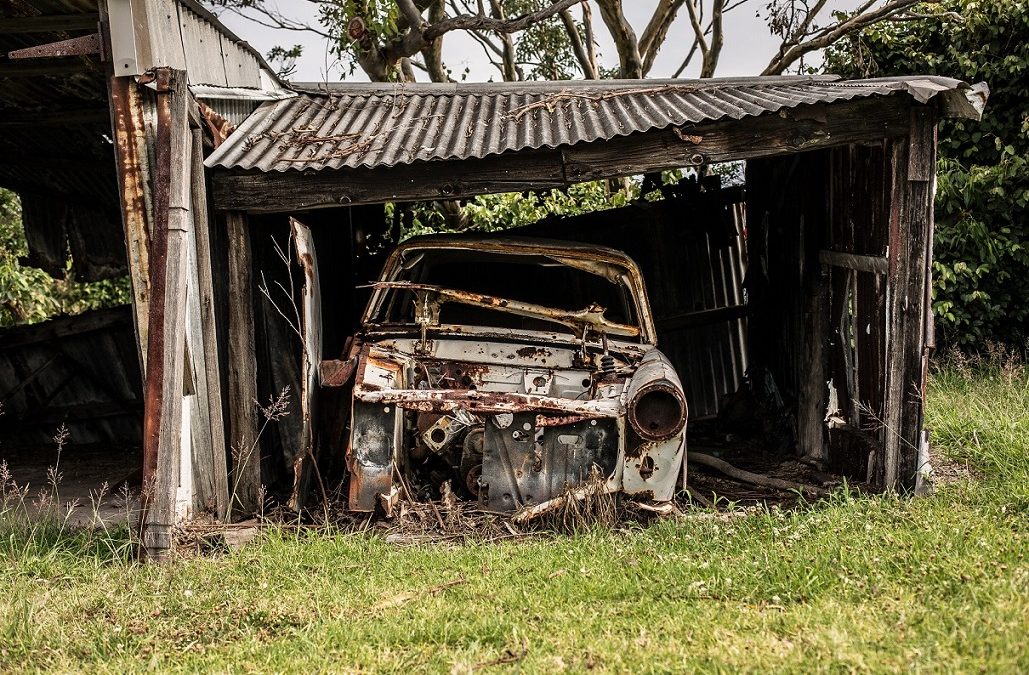In my mind, depreciation has two meanings – the common sense definition most people know intuitively, and the financial accounting definition which dictates how costs of fixed assets are spread out over many years. Note – if you are CPA, feel free to call me out on things I describe incorrectly. All feedback welcome.
Why Do Lawyers Need To Understand this Stuff?
“I went to law school because I’m not good at math! I don’t need to learn this!”
- Ever deal with any type of property damage in your practice? Diminished value claims rely on depreciation.
- Work with any business clients who own things? Welcome to understanding depreciation.
- Have your own firm? Spend money on stuff? Depreciation.
You have to understand this. It’s basic business knowledge (so it obviously doesn’t get taught in law school). No point in crying over split milk, let’s just get to learning it.
The Two Meanings of Depreciation
1) Common sense definition: Something goes down in value. No surprise – after all – it’s just the opposite of appreciation, right? Think about your car, computer, or roof. The older stuff gets, the more worn out it gets, and the less valuable it is.
Old stuff gets worn out and less useful; they say a new car depreciates in value about 20% the minute you drive it off the car dealer’s lot. Likewise, if you bought a home in Las Vegas in late 2006, you can see here that the average house fell from $298K to it’s current value of $194K. I wrote about rental properties here, explaining that it can provide good cash flow and a solid return on equity, but not to count on capital appreciation, because the graph below shows that values depreciate too. If prices do go up, good for you – just don’t bet your retirement on it.
2) In accounting, depreciation means something different. Here, it refers to the costs of a fixed asset (something that lasts many years) being allocated over several years. During MBA days we learn the “matching principle” which says to allocate revenues and costs to the the time period when they occur – that is why we have things like deferred liabilities, accrued expenses, and depreciation.
Equipment Example
As an example of depreciation, if you buy a piece of equipment for $70K which will last for 10 years, you divide up the cost by 10. For your taxes, you can only deduct $7K of depreciation expense annually. Seems like a crappy deal, right?
In terms of cash-flow, you spent $70K already (sad bank account), but your financial statements will only show a $7K depreciation expense in year one. The only upside is that you get $7K in expense in years #2, #3, #4 . . . #10, until it is fully depreciated.
Non-cash expense. Depreciation tends to understate profitability in the early years, and over-states it later on. On the balance sheet, this also gives a more accurate (albeit, still flawed) estimate of the salvage value. So using the $70k equipment example, after year four you’ve taken $28K in depreciation expense, and the remaining (salvage) value is $42K.
How Long?
Depreciate over how many years? This is a good question. The US government has multiple schedules which tell you the “expected average life” of your asset. It’s approximate and actually imperfect, but at least it is consistent.
- For rental properties here, the duration of assets can vary from 5 years (carpets, appliances) to 27.5years (roofs, buildings).
- For agricultural assets here, the duration can vary from 3 years (hogs and tractors) to 15 years (drainage facilities) to 39 years (non-residential buildings)
Last year, I bought 2 air conditioning units for rental properties. They cost about $4K each and when i did my taxes, my CPA said the units had to be depreciated over 27.5 years. I was pissed. Trust me, those things do not last that long. My CPA made it clear – that is what the US government has on their schedule – ergo – that is how much I can expense.
- I spent $8K (out of pocket)
- I can only expense $291 of it in year one. That sucks.
Depreciate or Expense? As someone who has rental properties, I would rather expense costs than depreciate them – after all – I have already spent the money. Would I rather reduce my taxable income today or s. l. o. w. l. y. over time. Hell ya, deduct now.
How Much?
$2,500 is the magic number. Looks like a few months ago, the IRS raised the maximum $ that you can deduct as an expense. . .from $500 up to $2,500. Nice, so if you are under that amount, deduct it immediately. If you are over $2,500, it is a depreciating asset and you only get to deduct 1/5 of the cost (5 year average life). Remember kids, $2,500 is the threshold now.
What happens if I replace it early? My CPA explained that is the equipment goes bad before the 27.5 years, I can expense the remaining cost when I throw it away. Sheesh.
Accelerated depreciation. The government – in their increasing complexity – has different ways you can depreciate assets. There is straight-line depreciation that I mentioned earlier (simply dividing by the number of years). Then there is accelerated depreciation – where you can deduct more of the cost earlier. This is clearly more advantageous for the company, and some argue that this is the single biggest tax break for corporations here.
That should give you a good, base line understanding of depreciation. If you’re still hazy about it, you should join LawyerSmack where people help each other out with problems like this all the time.














